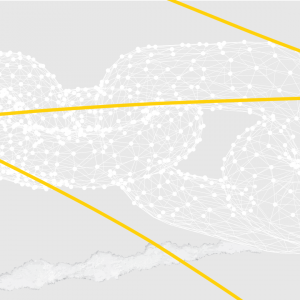Advice on how to manage negative emotions during a global crisis.
Since last week we celebrated Easter and this time around is challenging our wellbeing a little bit more than usual, we thought that this year would be the right time to offer the Rebels a different kind of gift. After a few discussions with our team, we came up with the idea of organizing a webinar with a psychologist, to address some of our most frequent questions in regard to how our mind cooperates with a global crisis, and how to achieve peace of mind during turbulent times.
We already knew Raluca, as she is one of the most renowned psychologists in Romania and a public person, so the decision of inviting her to the webinar came pretty naturally.
When we announced the webinar, we promised we’d get back with some of our learnings and most important takeaways, so here we are. We hope this helps you as much as it helped us.
Processing takes time
We are experiencing an atypical time in history, and our brain is still learning how to process and cooperate with the situation. Give it time and treat yourself with gentleness and patience. Make room for your thoughts and take the time to process.
Whatever you are feeling, it is normal. Embrace it
We often hear that we should not panic and that we should stay positive no matter what. Truth is that being calm in the current context is almost impossible, and we should all acknowledge that. Having more intense feelings and navigating from joy to sadness during this time is normal (*of course, if this persists, maybe you should consider talking to a professional).
We are all different
We all have different coping mechanisms. Some of us eat more or clean all day long, while others binge-watch their favourite series on Netflix. These mechanisms help us adapt to the uncertainty of the current reality. Be open and understanding with other people’s own coping mechanism.
Our brain is just trying to keep us safe
Our brain is trying to keep us safe and reduce the intensity of our emotions through our behaviours. The human brain is built in such a way that it becomes more reactive when it doesn’t have control over the situation and when it is dealing with a lot of uncertainty. This might justify why you’re feeling more nervous than usual and why you start to lack patience.
It’s about joy, fear, sadness, disgust and anger
It’s important to note that emotions are on a continuum, so when thinking about how we feel we should also consider the intensity of that feeling and the way it affects our day to day functioning. In other words, in a certain situation, you might feel sad (as a normal response to an unpleasant situation) or you might feel depressed (which is more intense and could interfere with your daily functioning). To understand more about them, we and Raluca totally recommend watching the Inside Out movie.
Experiencing the five stages of grief
During social crises our brain is going through stages of grief: (1) numbness, (2) intense emotions like anger, denial and fear, (3) awareness regarding the new reality, (4) acceptance and (5), the final stage, finding meaning in the situation. What is very important to know is that there is no linear process. You don’t simply jump from one stage to another, it’s more like a transition (you might go back to the stages that you consider you’ve already passed).
Why is this situation different and why is it affecting us so much?
Apart from the obvious changes in the economy, the health problems and the high level of uncertainty, this pandemic is different because it is affecting all of us at the same time. It is a global issue.
Our brain is used to knowing that if we are not ok, there will always be someone there ready to pick us up. This is not the case anymore these days since we all experience the same thing and we are all trying to figure out how to deal with the new normality.
What can I do during these times?
First of all, it is important to acknowledge that you and everyone around you are going through something unexpected. Secondly, don’t try to minimize (oh, I shouldn’t be feeling this, it is not a big deal) or maximize (this is the end of the world!) your thoughts.
Some of the techniques you can use are:
Grounding exercises — getting your mind always to the present moment (e.g: look around the room and say: this is a chair, this is a book, etc or I’m cooking now, I’m adding salt to the dish)
RAIN method — it’s an acronym from mindfulness that helps you acknowledge what’s happening with you.
R = Recognize the emotions or thoughts that are troubling you.
A= Acknowledge, Accept, Allow. The next step is to acknowledge your distress and accept it as your present reality.
I = Investigate. At this stage of the process, you can use your natural curiosity to delve more deeply into your distress.
N= Non-identification. Your painful thoughts, feelings, and sensations are not you.
Yoga exercise — if you haven’t tried it already, we recommend you to follow Yoga with Adriene Youtube channel for lots of yoga challenges and programs.
Meditation — it’s important to give your mind a break during the day so we recommend taking 10–15 min. to practice meditation. You can use Calm, Headspace or if you are not that into this type of meditation you can try journaling or simply listening (but really listening, without distraction) to a song that makes you happy.
Truth be told, this pandemic period is super challenging for all of us and we are all in this together. We are confident that humanity will come back stronger and why not, more empathetic.
The time spent with Raluca brought us so much clarity and peace of mind. We hope the info we shared will help you too.
What are the main lessons you have during this period? Share them with us.
🏡New to working from home? We talked to Alex, our Operations Manager and asked him to share a few tips on WFH and managing teams that work from home. You can read the entire guide, here.
🧐Curious to know more about how we take care of our employees during COVID-19? Petruta, our Employer Brand Specialist wrote an article and shared everything about the RebelDot internal initiatives during these times.






